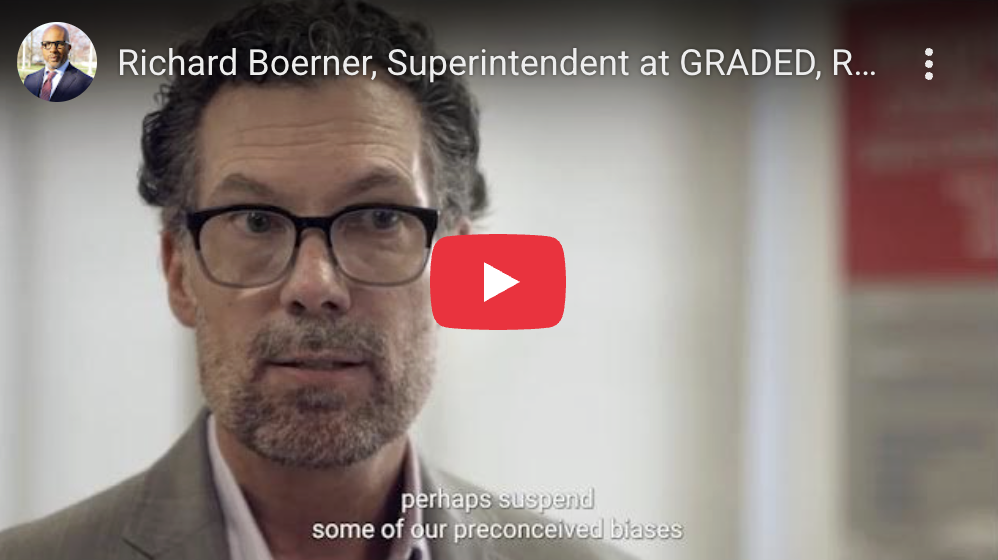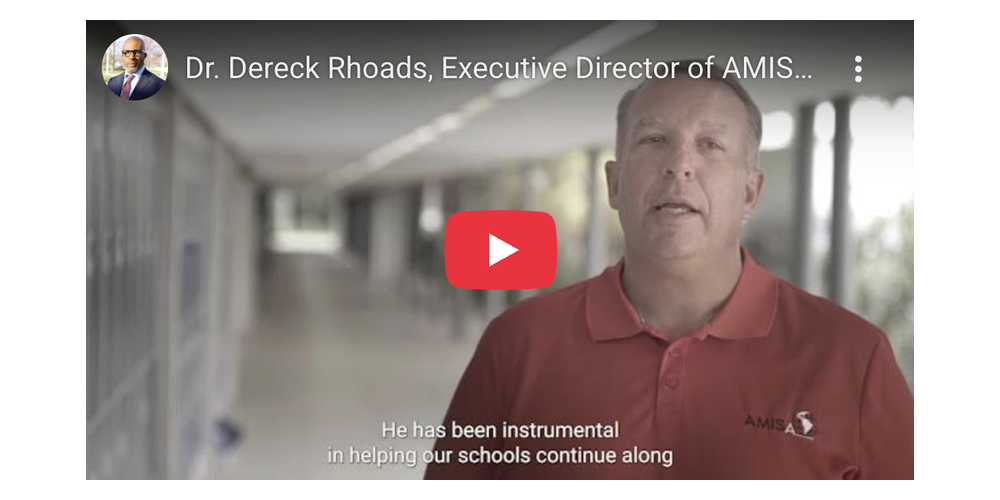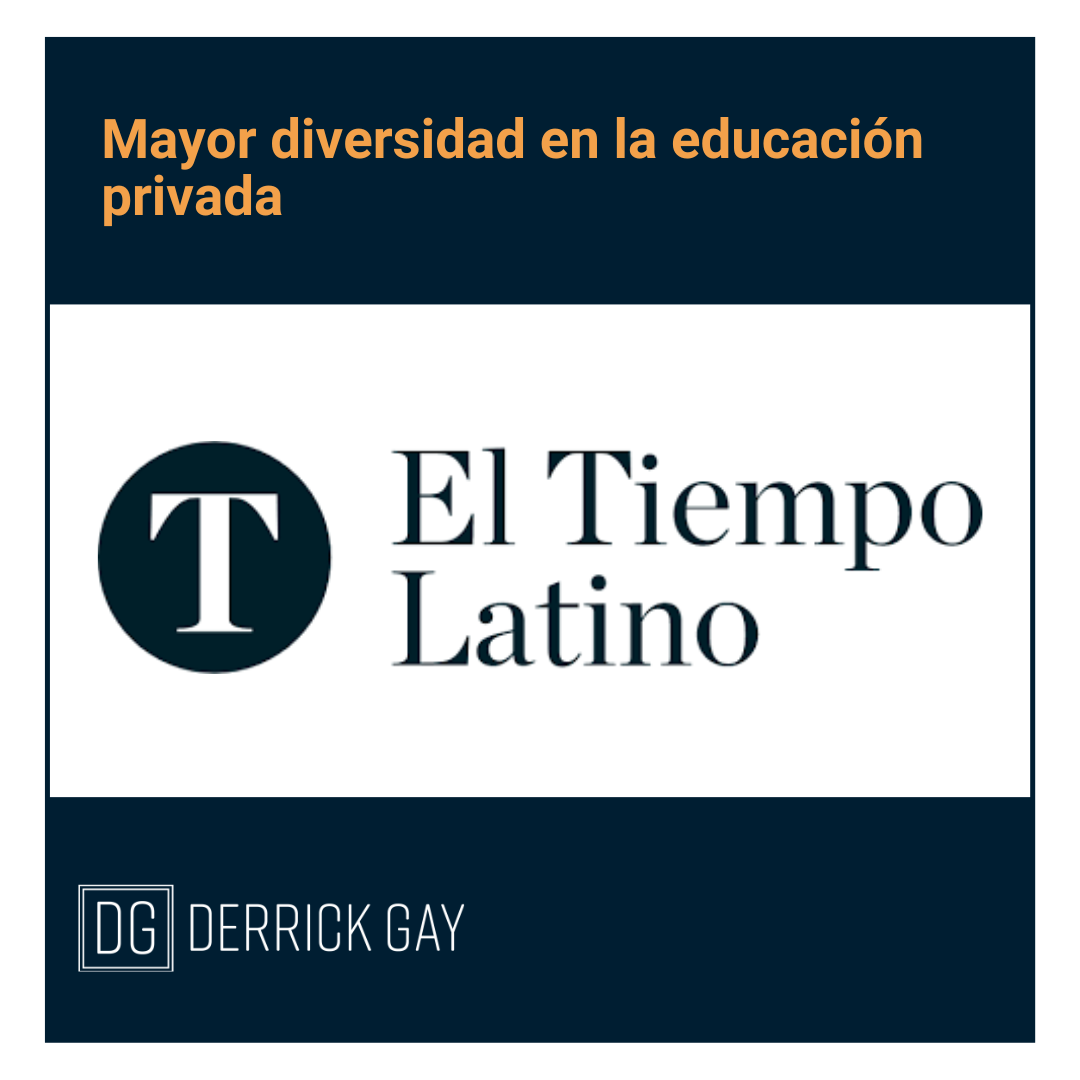Services for International Schools
Dr. Gay consults in English, Spanish, French, and Portuguese, and has over 25 years of experience in education as a teacher, senior administrator, and currently as a global consultant and thought leader. This deep experience leading Intercultural Competency efforts in over 500 schools across the world provides a unique ability to translate theory and research into concrete strategy mindful of the regional and country-specific frameworks, customs, needs, laws, and practices unique to your school and country.
Workshops for Your
Entire School
Whether you are looking for a workshop for your faculty and staff, parents, or students, Dr. Gay will create a brave space for authentic dialog, capacity building and action. All programs are customized to your specific needs and can be conducted in Spanish, Portuguese, French, or English. See sample workshops below.
Strategic DEIB
Planning
A comprehensive DIB and/or intercultural competency strategy does not happen overnight, and there are many possible pitfalls along the way. Dr. Gay’s approach is inductive and evidence-based, integrating your school’s unique cultural, linguistic, and geographic nuances to design a meaningful strategy to advance your school’s mission.
Board & Administrative
Team Capacity Building
International school leaders have unique needs that transcend a one-and-done approach. When you work with Dr. Gay to build awareness, capacity, and skills, you will ensure your school is aligned with research-based best practices mindful of local customs, practices, and laws. Global issues require local solutions.
Watch a Testimonial Video

“For too long people took DEIB as an American issue. Actually it is a very profound issue in this region of schools.”
- Dr. Edward Greene Executive Director East Asia Council of Schools (EARCOS)
Recommended Workshops
All workshops are fully customized for your school and constituents. Please find the most frequently requested workshops below:
-
Reframing Diversity to Deepen Belonging to Foster Inclusive Schools Grounded in Dignity and Respect in International Schools
This two-day workshop, curated for international school senior leadership teams, provides actionable strategies to foster inclusive communities grounded in dignity and respect.
Drawing on over two decades of research and experience, this retreat reimagines diversity as a powerful driver of belonging, equipping leaders to navigate the complexities of fostering sustainable change in their unique international contexts.
Examine Data-Driven Trends in Belonging
Reframe Diversity to Drive Belonging
Understand the Dysfunctional Cycle of Diversity
Reframe Efforts to Strategic Change Management
Personal Introspection for Inclusive Leadership
Organizational SWOT Analysis
Strategic Plan Analysis
Prioritizing Strategic Belonging Goals
-
International schools are chosen by families seeking a globally minded education—one that cultivates intercultural competency, open-mindedness, and preparation for a diverse world. At their best, these schools foster environments grounded in belonging, dignity, and mutual respect.
However, identity differences—particularly race, religion, gender, sexual orientation, and nationality—can also become catalysts for identity-informed harm. Stereotypes, discrimination, bias, and a lack of meaningful exposure to difference create conditions where students use language, humor, and social power to exclude or demean. These behaviors, if left unaddressed, erode school culture and contradict our shared values.
This workshop builds the inclusive leadership capacity needed to recognize, respond to, and reduce identity-informed harm in international schools. Drawing on current student data from surveys and focus groups, and grounded in research and proven frameworks, participants will engage in deep learning, critical reflection, and collaborative planning.
-
A central promise of international schools is their ability to bring together students, educators, and families from diverse national, linguistic, and cultural backgrounds. These communities are uniquely positioned to develop global citizens equipped to navigate difference with empathy and skill. Yet, most educators receive little to no training in intercultural communication—a vital subset of intercultural competency.
Without shared frameworks, even well-intentioned interactions can lead to misunderstandings, exclusion, and fractured trust among staff, students, and families. These challenges fall outside the scope of U.S.-centric DEIB frameworks and require a globally relevant lens grounded in intercultural fluency.
This workshop equips international school leaders with the theory, language, and practical strategies to lead and communicate across cultures with clarity, empathy, and effectiveness. Drawing on Dr. Gay’s extensive experience with schools across six continents and informed by frameworks from Erin Meyer (The Culture Map), Geert Hofstede, Milton Bennett, and Darla Deardorff, the session is curated specifically for the international school context.
-
International schools are increasingly confronting the reality that equitable representation among faculty and staff—particularly from historically marginalized groups—remains a significant challenge. This issue was recently amplified by the public cancellation of a major search firm serving international schools, spotlighting deep-rooted concerns about bias in hiring practices.
Through work with international school leaders and hiring committees, it has become clear that many have not received formal training in unconscious bias. Hiring and recruitment processes are often highly variable—even within the same school—leading to inconsistencies that undermine fairness and inclusivity.
This workshop builds inclusive leadership capacity to recognize, understand, and respond to unconscious bias in hiring. Grounded in research and curated for the international school context, it offers the insight, structure, and strategies needed to begin transforming recruitment practices toward greater equity and belonging.

International Media


















